How You’re Using Your Dishwasher Wrong, According to Experts

The dishwasher is arguably one of the most important inventions for home appliances ever created, saving time and effort in the kitchen. “If you are preparing at least two meals a day for a family of four, you can save more than 75 percent in energy and water costs by running your dishwasher instead of handwashing your dishes,” Morgan Eberhard, Senior Scientist and Science Educator of Home Care at P&G, tells The Spruce. “This can save you more than $100 per year on utility bills just by using your dishwasher and roughly $1,300 over the lifetime of your dishwasher.” In order to get the most out of your dishwasher, it’s important to use it correctly. Here are ways you may be using your dishwasher wrong, according to experts.
RELATED: The Ultimate Deep-Cleaning House Checklist.
Leaving Food Bits On Dishes
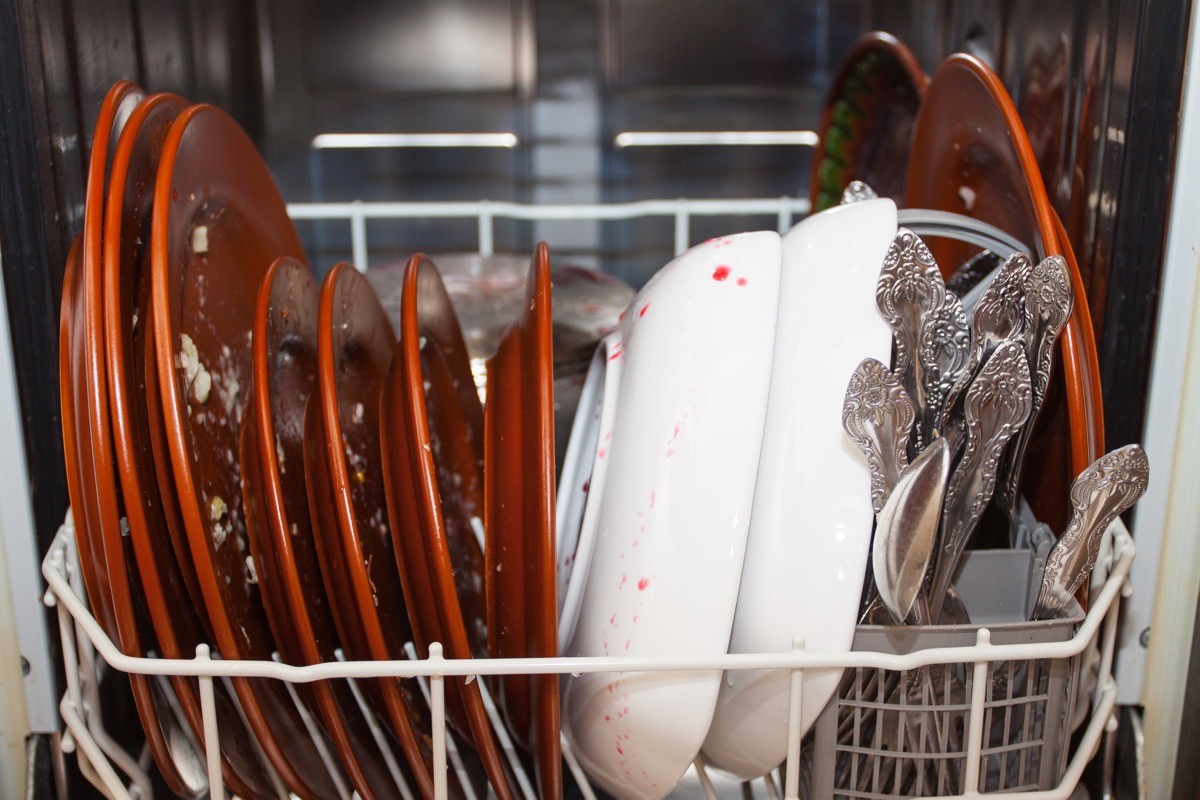
No, you don’t need to rinse off grease before you put plates in the dishwasher, but you do need to remove any excess food. “If you’re putting dirty dishes straight into the dishwasher without scraping off food bits, you might as well be asking for a clog,” Jade Piper, the operations manager for BetterClean, tells The Spruce. “Those itty food bits can accumulate and block the spray arms and filters, which means that water won’t reach all those dirty spots.”
Overfilling the Washer
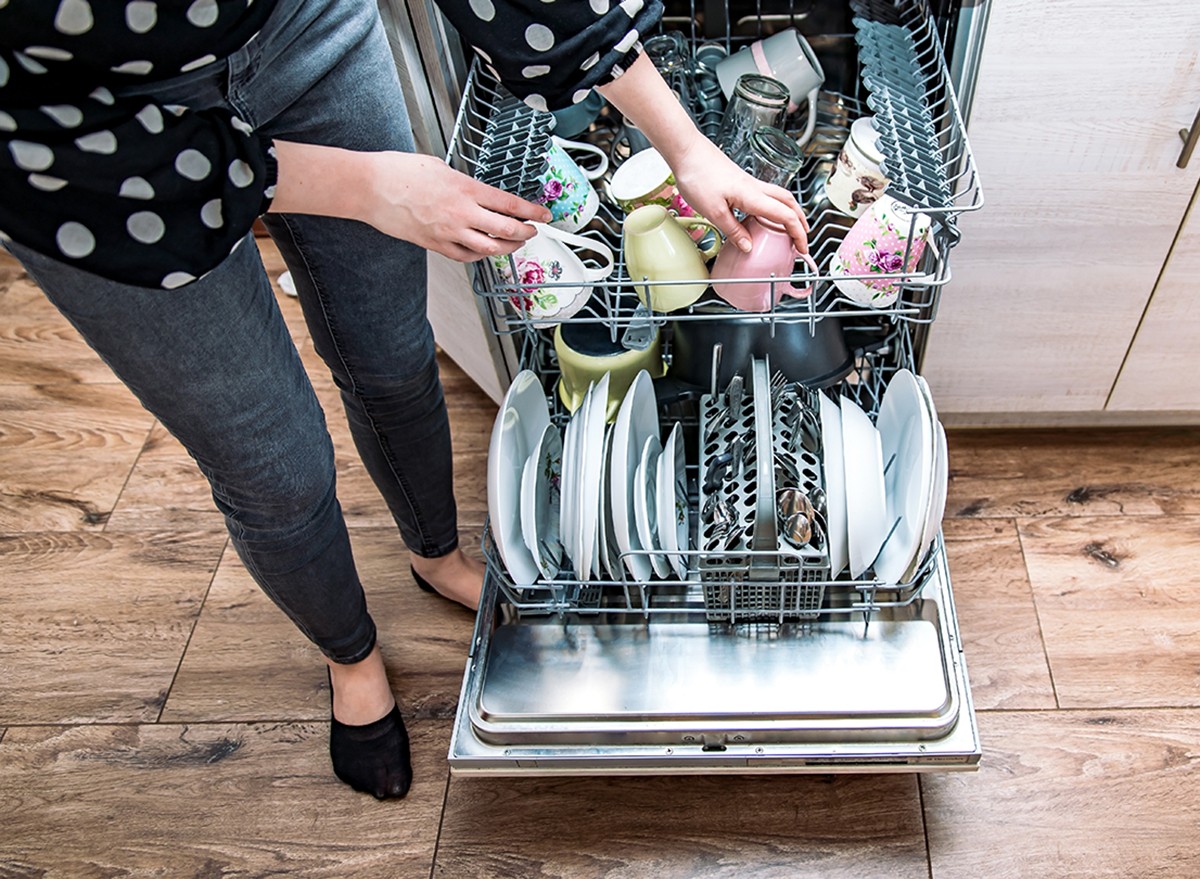
It may be tempting to overfill the dishwasher, but you risk undermining the entire wash cycle. “Overfilling a dishwasher will not do any damage to the dishwasher,” Ron Shimek, president of Mr. Appliance, tells Homes & Gardens. “But, overfilling a dishwasher will not thoroughly clean all dishes, leading to a rewash costing you more time and money.”
Putting Plastics In the Lower Rack
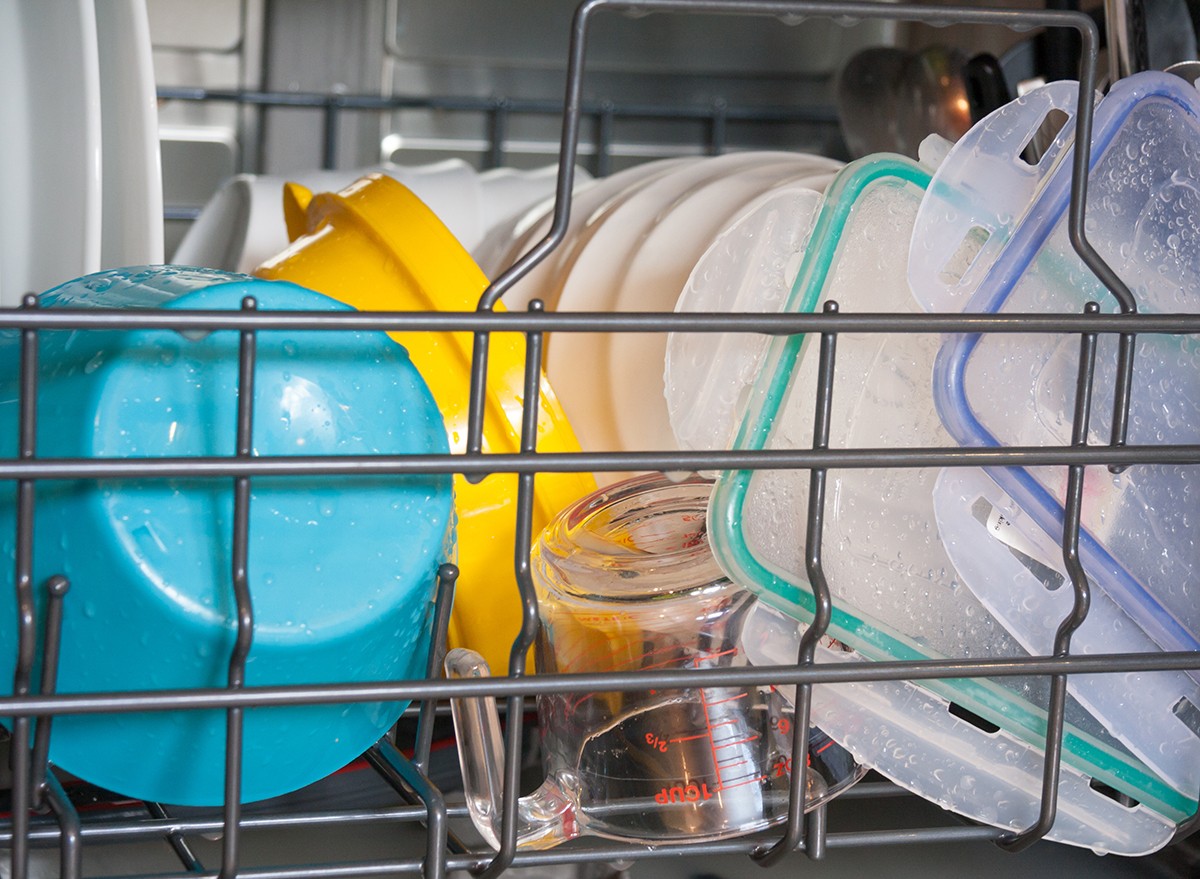
There’s a reason many plastic items say top rack only. “If you place plastic items on the bottom rack, they’re exposed to direct heat from the dishwasher’s heating element,” Piper says. “This can cause them to warp or even melt, which is a nightmare!”
Not Cleaning the Filter
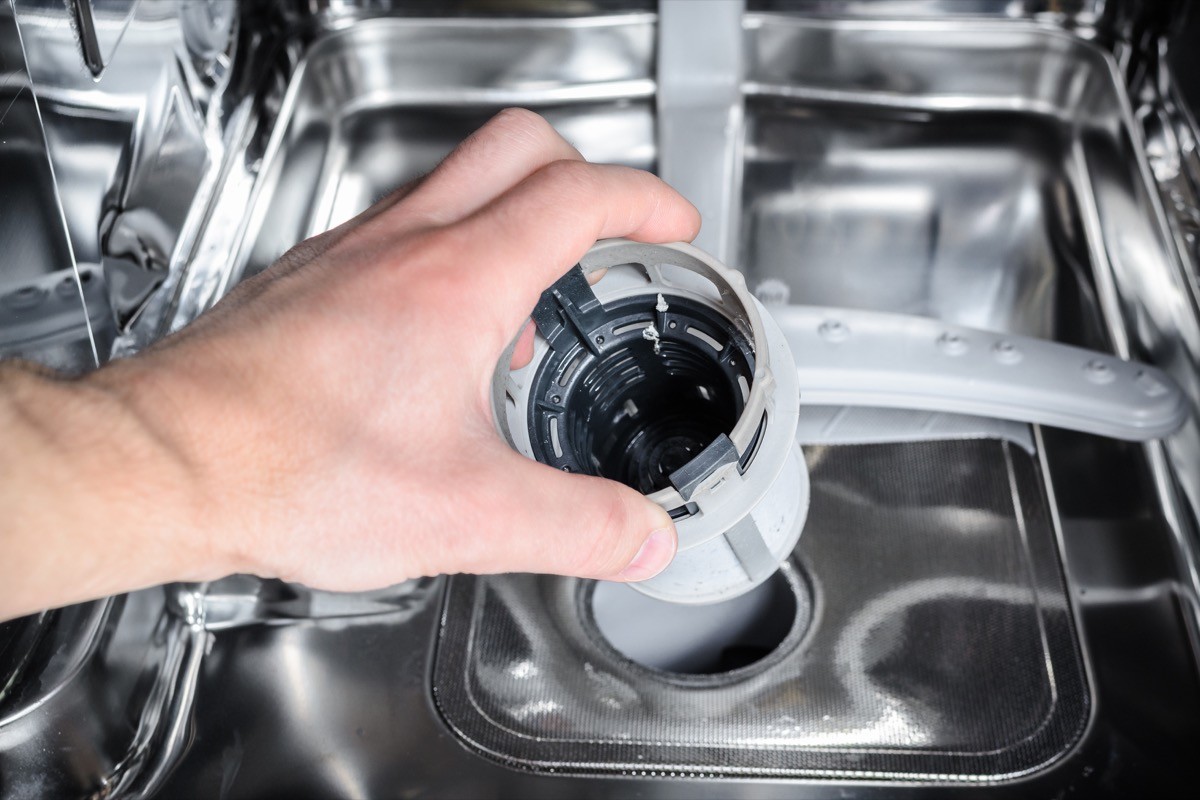
It’s vital to clean the dishwasher filter at least once a month, and clean the dishwasher once a week. “A dishwasher should be cleaned often. In most cases, weekly cleaning of the screen can be performed,” Shimek says. “It is wise to also run a dishwasher cleaner through the machine monthly.”
RELATED: Never Do This Before Loading Your Dishwasher.
Not Cleaning the Spray Arms

When was the last time you cleaned out the spray arms of your dishwasher? Neglecting this chore can prevent your dishwasher from washing properly. “Make it a habit to periodically check and clean the spray arms,” Piper says. “Grab a toothpick or a small brush so nothing is blocking the holes.”
Too Much Detergent
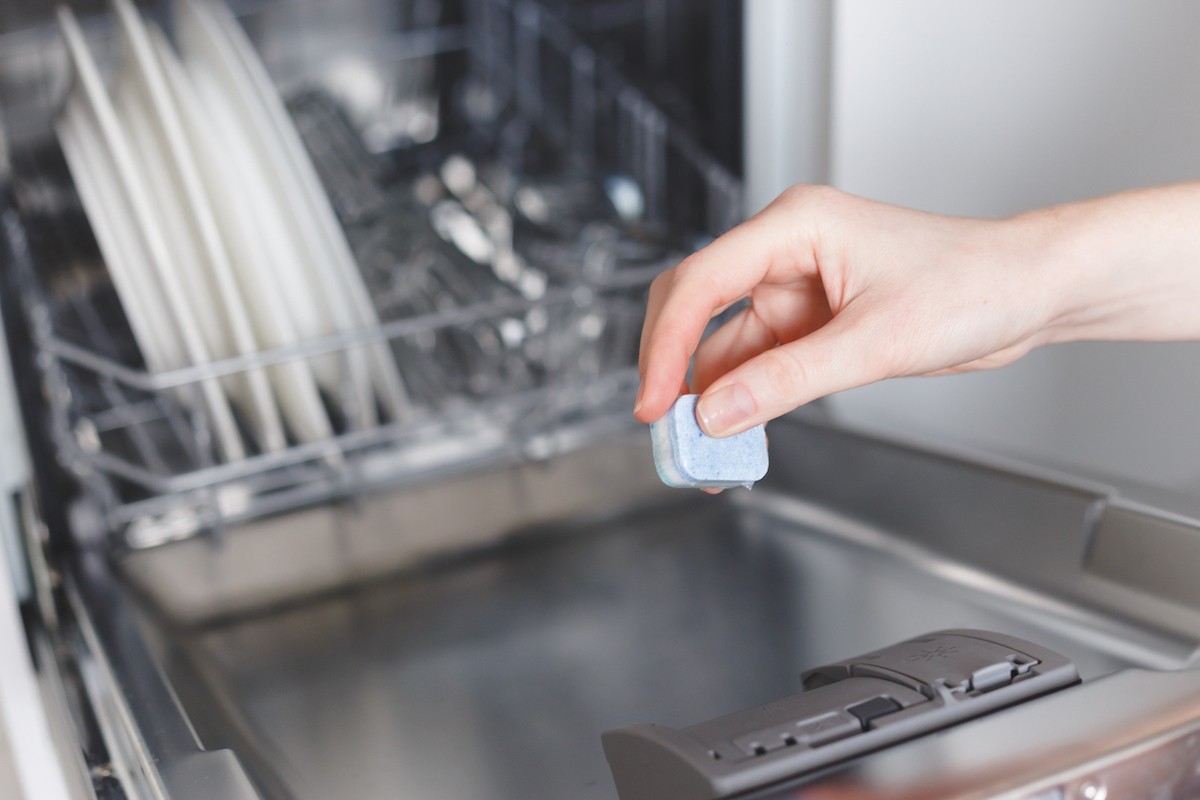
Be careful not to overdo it with the dishwasher detergent. “Using the wrong detergent or too much detergent can also cause problems, such as a buildup of residue or damage to the dishwasher,” Andrii Gurskyi, co-founder at HomeClean, tells Homes & Gardens. “Be sure to use the detergent recommended by the manufacturer, and avoid using too much.”
Loading the Silverware Incorrectly
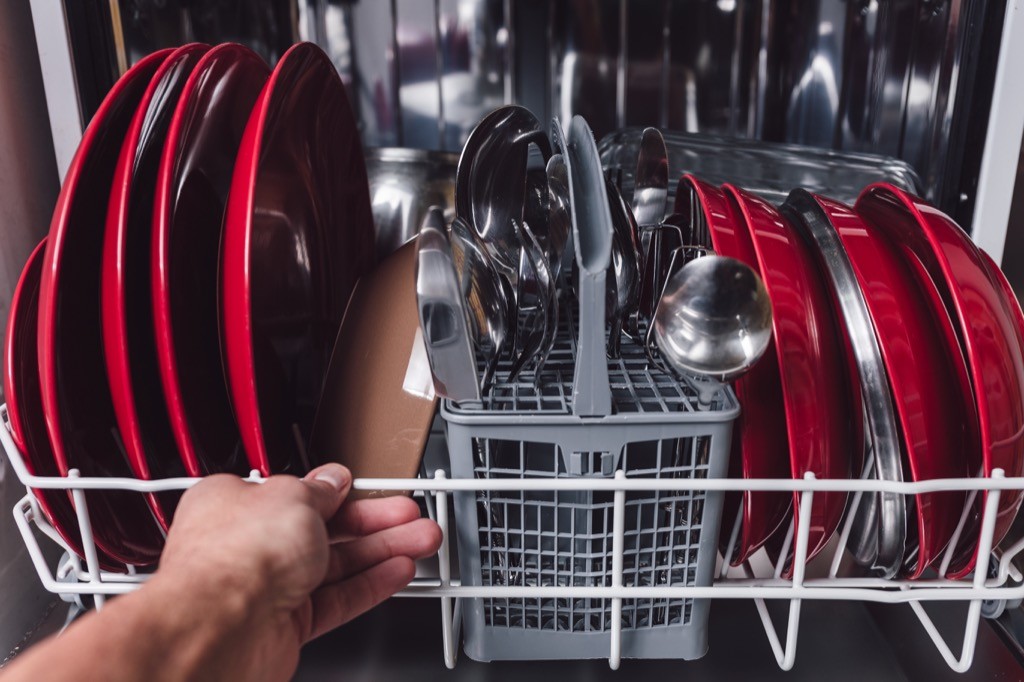
It’s best not to have the silverware loaded handles-down. “How you sort your silverware is a personal preference, but we suggest loading the silverware handles up instead,” Daria Saxton, appliance specialist at Sharp, tells Woman & Home. “This way, you’re lowering the chance of accidentally jabbing yourself with a utensil and will also reduce the number of times you touch the eating part of the fork/knife or spoon, making it more hygienic, too.”